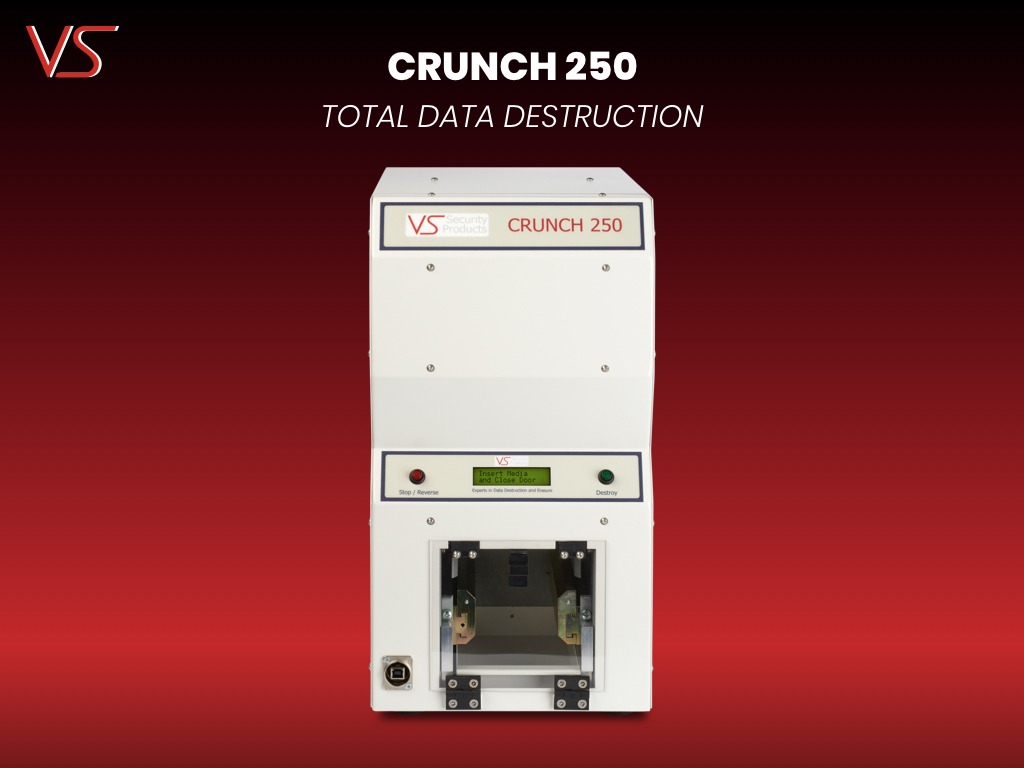Top 21 Data Disposal Challenges Facing Businesses Today

As businesses navigate the complexities of data security, one of the most daunting challenges is ensuring that sensitive information is disposed of properly. With the growing threat of cyberattacks and the tightening of data protection regulations, companies face a myriad of obstacles in managing data disposal effectively. From confusion over the best destruction methods to the logistical difficulties of handling outdated devices, the risks associated with improper data disposal are significant.
The following list outlines 21 of the most pressing problems businesses encounter when attempting to securely destroy their data, highlighting the urgent need for robust, compliant disposal strategies:
1. Uncertainty about Best Practices: Many businesses struggle to determine the most secure and efficient method for data disposal, with confusion around whether to degauss, shred, or erase data.
2. Logistical Issues: Handling large volumes of outdated devices and media can be a logistical nightmare, especially for organizations with limited space or resources.
3. Compliance with Complex Regulations: Navigating the various local, national, and international data protection laws adds layers of complexity, with severe penalties for non-compliance.
4. Insufficient Staff Training: Employees often lack proper training in secure data disposal, leading to errors and vulnerabilities that can be exploited by cybercriminals.
5. Cost Constraints: Secure data destruction can be expensive, particularly for businesses that need to process vast amounts of data or regularly upgrade their equipment.
6. Technological Challenges: Different types of storage media, such as SSDs, hard drives, and CDs, require different destruction methods, complicating the disposal process.
7. Environmental Impact: Improper disposal of electronic waste can harm the environment, requiring businesses to balance security with sustainability.
8. Data Recoverability Risks: Incomplete data destruction methods can leave residual data that can be recovered using specialized software, posing significant security risks.
9. Decision-Making Paralysis: Businesses are often unsure whether to hire external destruction services or manage data disposal in-house, leading to delays and potential security lapses.
10. Evolving Cyber Threats: The rapid evolution of cyber threats means that old data disposal methods may no longer be effective, requiring continuous updates to disposal practices.
11. Lack of Accountability: Without clear auditing processes, businesses may struggle to prove that data was securely destroyed, leaving them vulnerable to legal challenges.
12. Risk of Data Breaches: Improper data disposal increases the risk of sensitive information being leaked, leading to reputational damage and financial loss.
13. Time-Consuming Processes: Data disposal can be a time-intensive task, particularly for businesses with extensive archives or outdated equipment.
14. Storage of Outdated Devices: Businesses often hold onto old devices for too long, increasing the risk that sensitive data could be accessed by unauthorized parties.
15. Lack of Specialized Equipment: Many businesses lack the specialized equipment required for secure data destruction, such as degaussers or shredders.
16. Employee Negligence: Human error, such as forgetting to properly wipe or destroy a device, is a significant factor in data breaches.
17. Inadequate Disposal Policies: Without clear policies, businesses may dispose of data haphazardly, leading to inconsistencies and security gaps.
18. Confusion over Data Retention: Businesses often struggle to determine how long data should be retained before it must be destroyed, leading to either premature disposal or unnecessary retention.
19. Third-Party Risks: Relying on external vendors for data destruction can be risky if those vendors do not follow strict security protocols.
20. Legal Repercussions: Failure to properly destroy data can lead to significant fines and legal action, particularly under regulations like GDPR and CPRA.
21. Public Trust Issues: Businesses that fail to securely dispose of data risk losing the trust of their customers and partners, which can have long-term financial and reputational consequences.
Secure Data Destruction as a Solution
To mitigate these risks, businesses should invest in secure data destruction methods that ensure data is permanently erased and cannot be recovered. Tools like our NSA-listed Crunch 250 and SDD Master provide reliable, on-site solutions for data disposal. These devices are designed to destroy data beyond recovery, offering businesses peace of mind that their sensitive information is fully removed.
Furthermore, integrating auditing features into these processes helps ensure compliance and provides documentation to prove that data was destroyed securely, thereby reducing the likelihood of legal and regulatory issues. By adopting these advanced tools, businesses can demonstrate their commitment to data security and build trust with clients and stakeholders.
Looking for secure on-site data disposal solutions? Connect with one of our advisors who can guide you on a suitable option: [email protected]
Photo credit: Iconica Media


